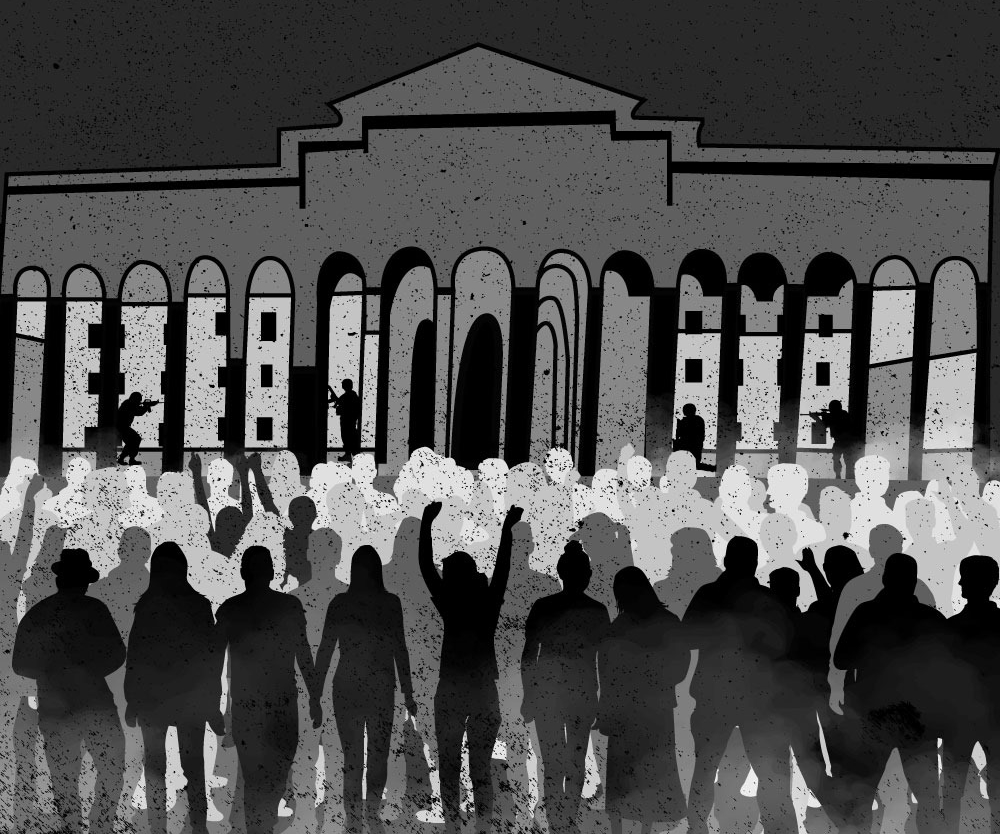NEWS

“Beyond the Lost Eye” is the report prepared by GYLA regarding the events of June 20-21, which will be presented on November 27. The report evaluates the legitimacy and proportionality of the decision to disperse the protest rally on 20-21 June 2019, the cases of inhuman treatment, excessive use of force against journalists and interference with journalistic activities. The report also analyzes the practice of imposing administrative detentions and judicial review of cases in connection with the events of June 20-21.
GYLA believes that:
- On June 20, the Ministry of Internal Affairs failed to properly manage the tense situation and did not properly resort to the resources of communication, negotiation, and dialogue, which raised questions regarding the legitimacy of the force used against protesters;
- The Ministry of Internal Affairs used force unlawfully and disproportionately. Along with the tear gas, the Interior Ministry illegally fired rubber bullets against protesters. The rubber bullets were allegedly used within the scope of wide discretion without prior permission and instructions, which once again indicates its unlawfulness. The rubber bullets were applied against those who were not posing any danger. It has been also confirmed that law enforcers fired rubber bullets from a close range and in the direction of vital human organs.
- Numerous cases of physical and verbal abuse by law enforcement officers were reported. Actions carried out by law enforcers equal to ill-treatment and the State is required to conduct an effective and impartial investigation in this regard;
- Inhuman treatment was applied against those persons who were under effective police control. The “police corridor” arranged at the stairs to the parliament and physical and verbal abuse by law enforcers in the parliament yard reached the minimum level of severity that constitutes degrading treatment against detainees and requires an investigation to identify and impose criminal liability on perpetrators.
- The rights of media professionals, including the right to freedom of expression, the right to the prohibition of inhuman treatment, and property rights were grossly violated. There were cases of interference with journalistic activities as well.
- On 20-21 June, the Ministry of Interior massively applied administrative detentions against protesters. As a result, 342 persons were jailed, and 121 were subjected to the most severe sanction- administrative detention. The above practice and its scale clearly show that the State retains the current Administrative Offences Code of Georgia as an instrument to unlawfully restrict the right to assembly and manifestation. On 20-21 June, the MIA imposed administrative detentions indiscriminately without examining individual circumstances including against those persons who were not protesters and/or whose actions did not give rise to the grounds for administrative imprisonment.
- The formulaic consideration of cases in the court once again revealed systemic and practical gaps within administrative case proceedings.
- The practice of imposing sanctions in the daytime and evening hours of 21 June creates the impression that it was a pre-agreed and pre-arranged action by the judges rather than based on individual and independent consideration of cases.
The report offers the recommendations developed by GYLA to Chief Prosecutor’s Office of Georgia, the Ministry of Internal Affairs, Parliament and the Court.
SHARE: